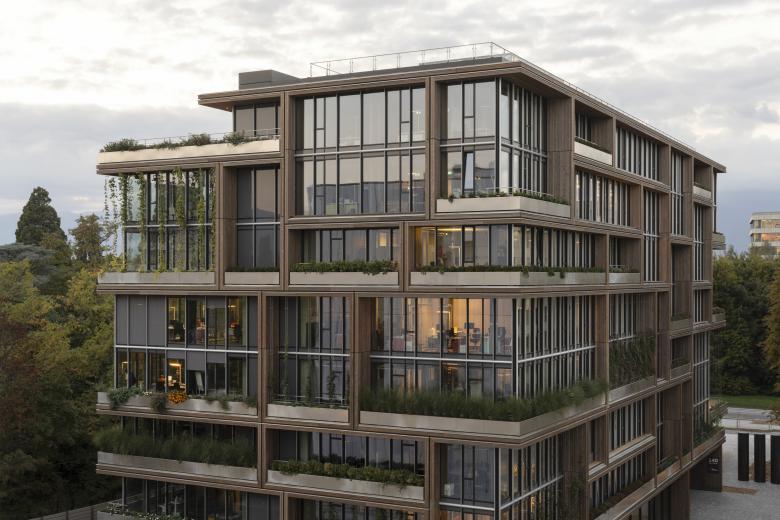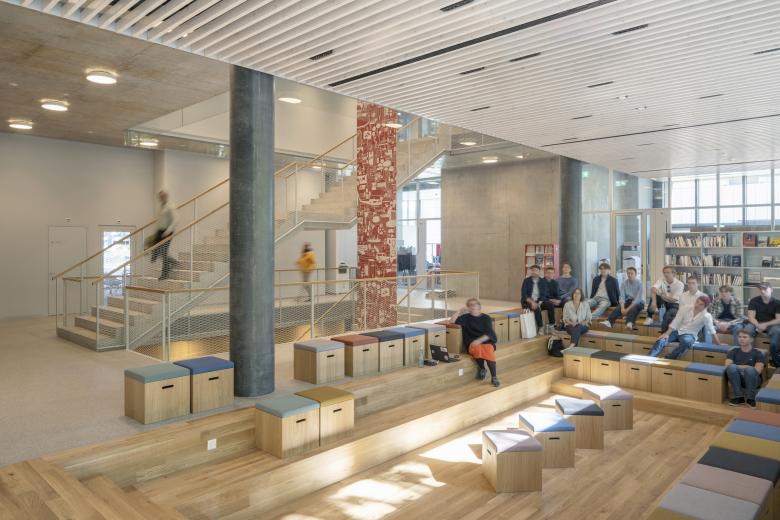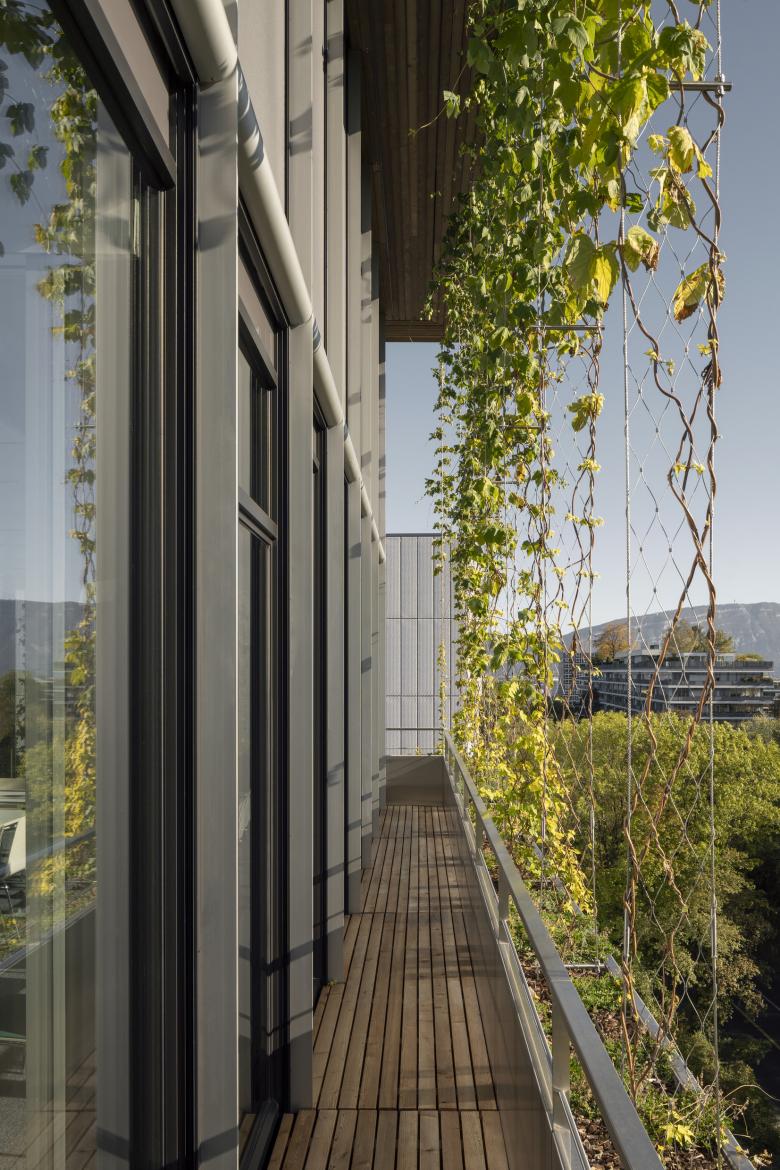The international organisation Médecins Sans Frontières needs to be able to respond to current situations immediately and worldwide. Specialised teams from various fields supervise task forces providing on-site relief. As soon as an emergency is resolved, the teams disband and regroup. Such a fluid organism requires an adaptable building. The architecture of the new headquarters in Geneva achieves this with a transparent and communicative spatial structure.
The scalability of work areas, interaction among teams and the well-being of users were at the core of a design that unites spaces of different proportions and thus accommodates work in large, medium and small groups. Between individual and group offices, there are large conference rooms and communal areas on all floors. A generous staircase flowing through the entire building connects all departments visually and spatially. A three-dimensional, planted façade conveys the internal structures towards the outside. Like a giant jigsaw puzzle, large-format wooden frames with balconies and loggias join together to form a clearly defined volume, analogous to an organisation of individual specialists dedicated to a common goal.
The new building implements aspects of sustainability as an essential objective of planning on several levels. In addition to the use of regionally sourced wood, "cradle to cradle" production methods proposing recycled or easily recyclable materials were given preference in the tender. The façade's vegetation screen helps improve air quality by absorbing CO2. The flexibility of the spaces, with an option for future expansion, will ensure that the building remains adaptable and meets the demands of the open working environment of those committed to Médecins Sans Frontières on a daily basis.
Médecins Sans Frontières
Back to Projects list- Location
- Geneva, Switzerland
- Year
- 2022
- Brief
- Operational centre for the humanitarian medical organisation Doctors Without Borders / Médecins Sans Frontières
- Data
- Gross FloorAarea: 14.260 m² | Competition: 2017, 2nd prize | Planning Commissioned 2018 — 2022
- Project Team
- Marc Broquetas, Tom Geister, Fotios Gkrilias, Philipp Hesse, Natalie Hipp, Julia Knaak, Florent Le Corre, Moojin Park, Anna Luise Pfau, Matthias Sauerbruch, María Silvestre Martinez




